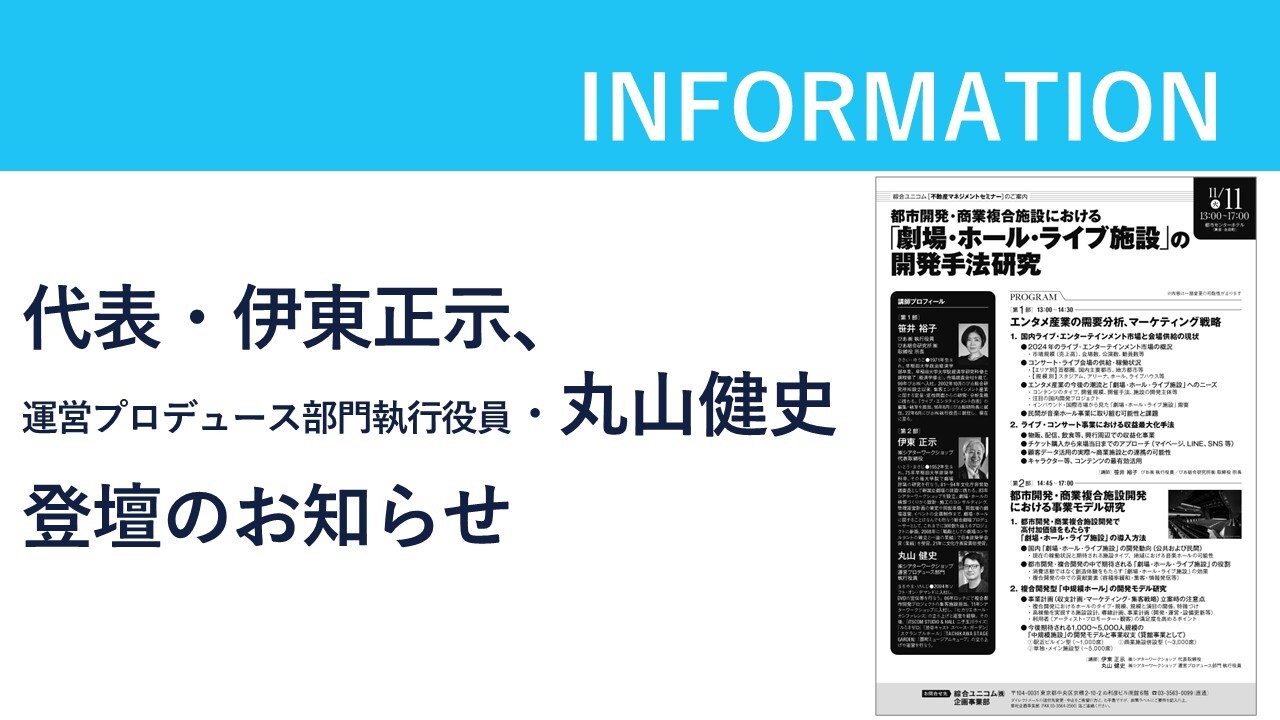
Conducting all types of surveys related to theatres and venues, from surveys at the construction planning stage, such as location, site and facility development trends, to surveys at the operational stage, such as operations and actual performances.
We lay the foundations for more active cultural and artistic activities by understanding the situation around theatres and venues.


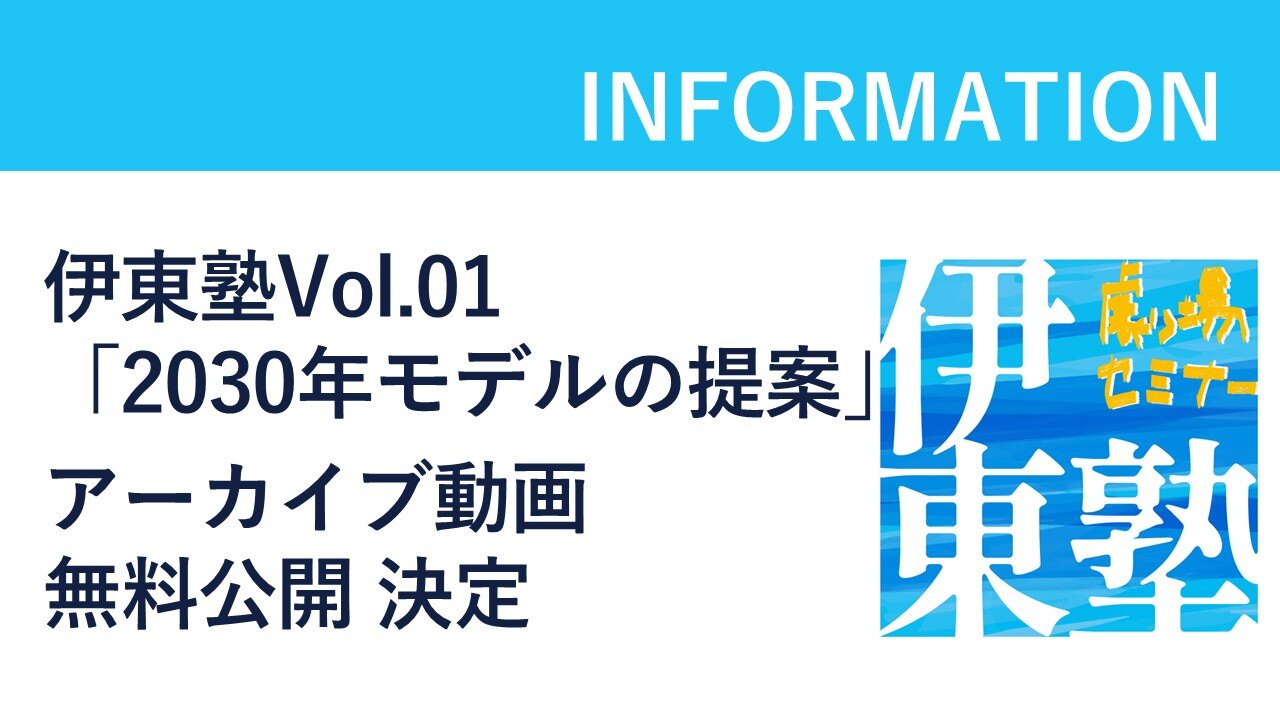
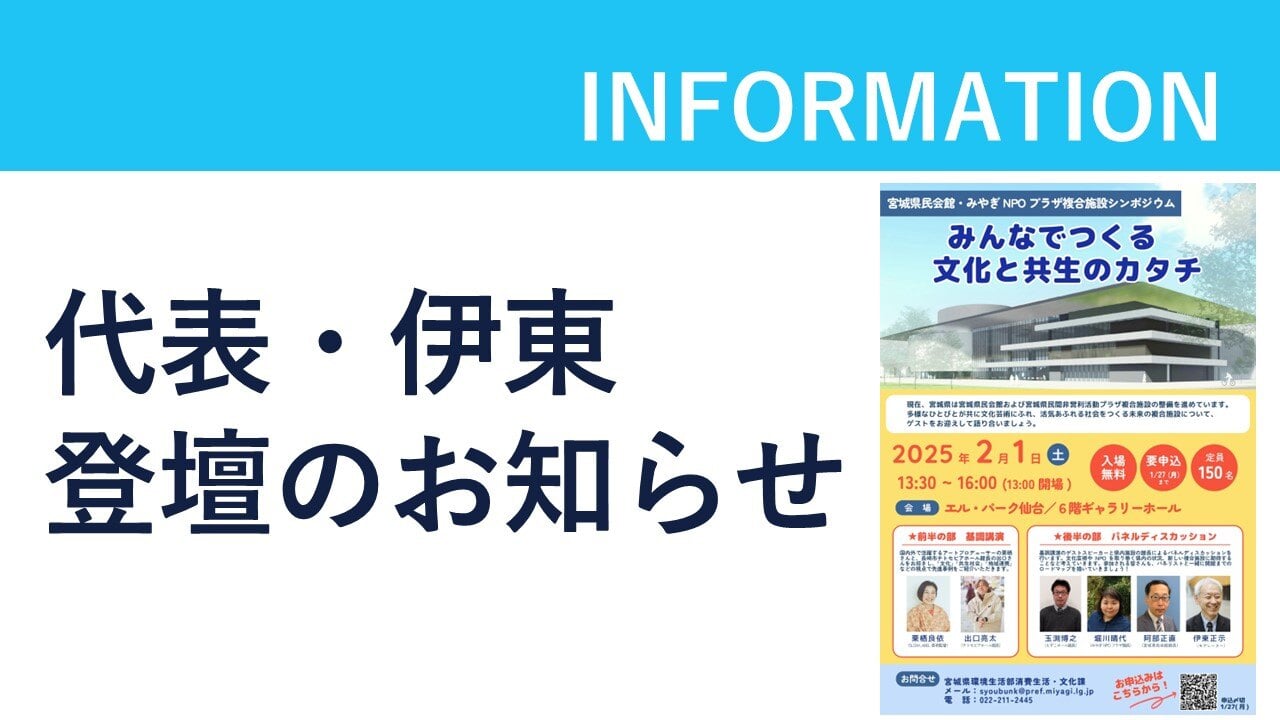




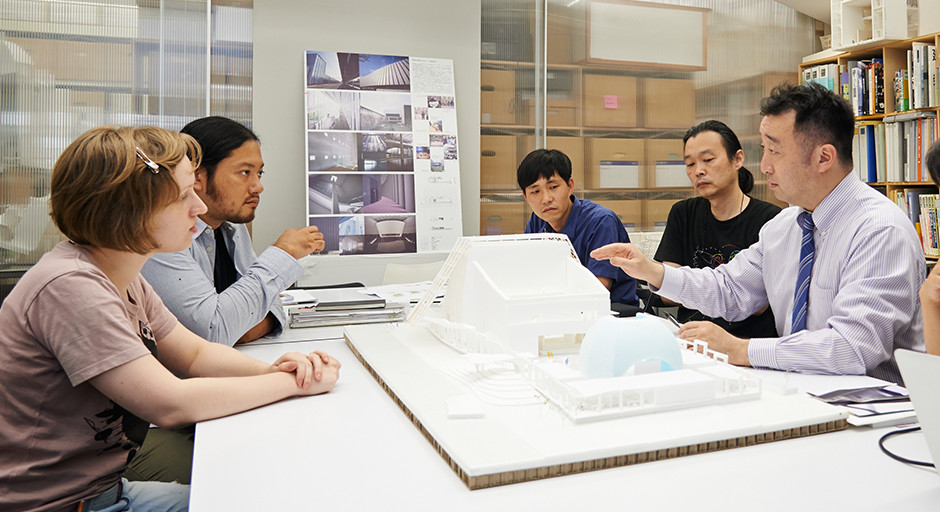
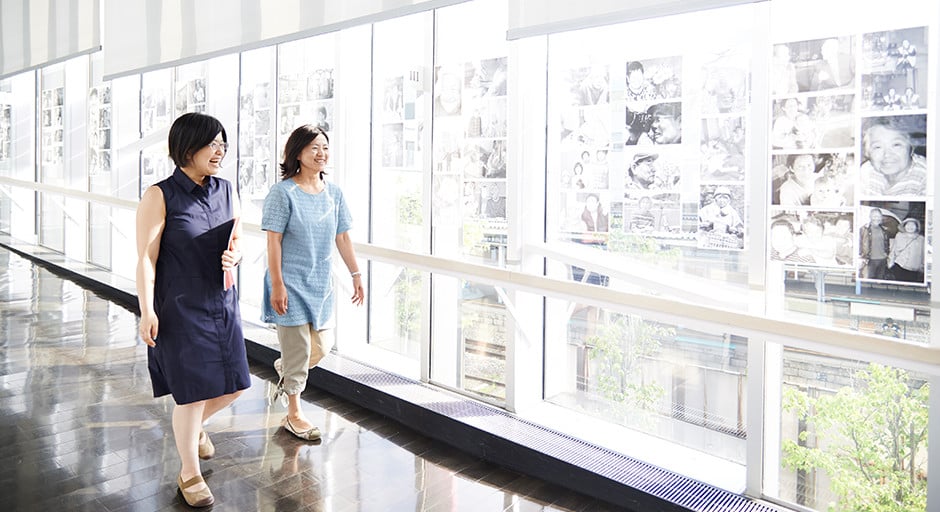
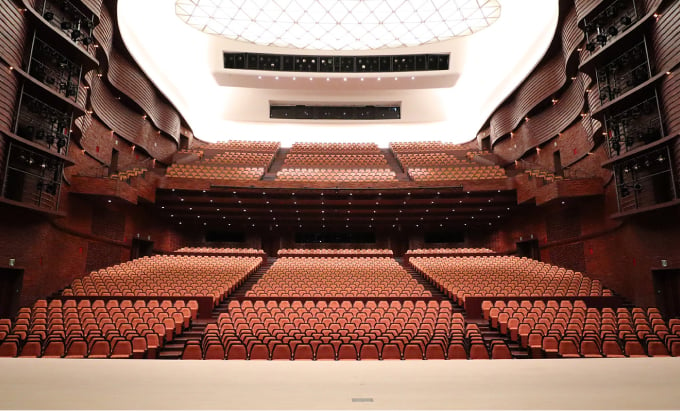
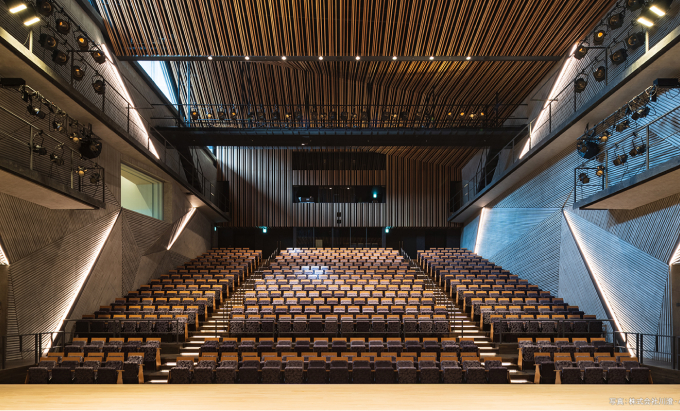
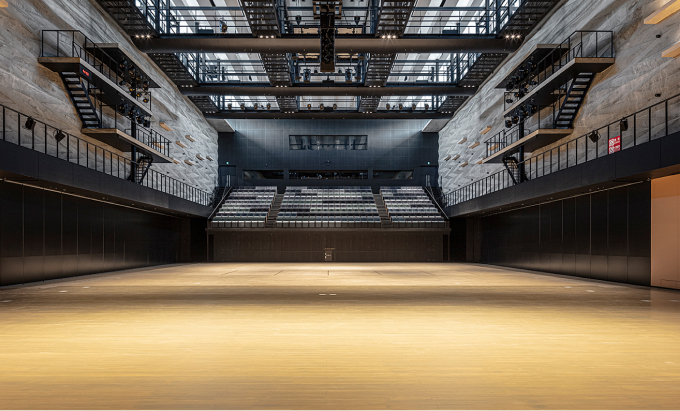
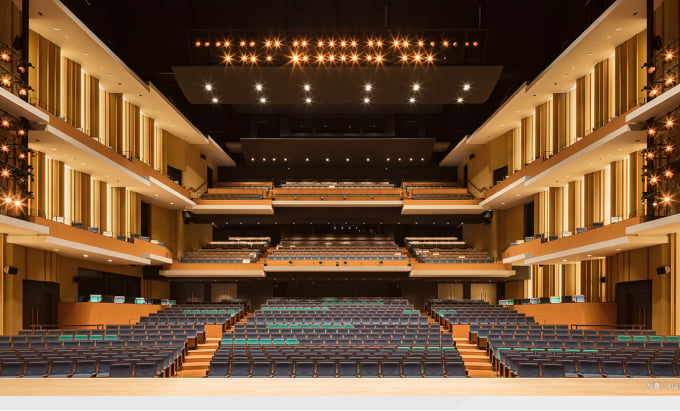
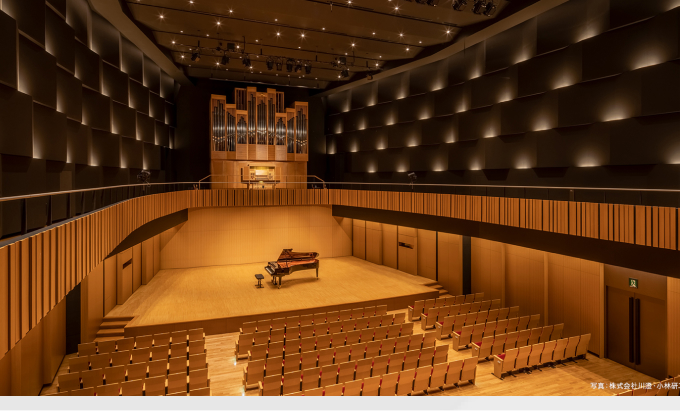
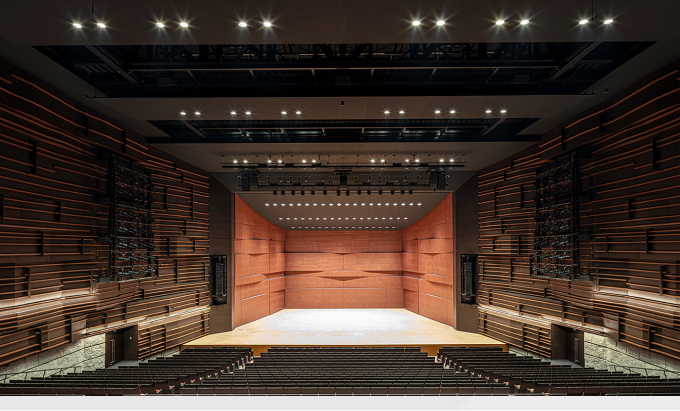
"In the design process, we must create an envisioned image that fits the location and conditions presented by the client. Is it possible to propose specific design requirements, including concept work, supporting statistical data, the organization of the theatre space, detailed requirements to be reflected in the architectural and facility aspects, and appropriate special stage equipment?"
Client
(Public Sector)
"I have been put in charge of rebuilding the cultural centre.
I would like to know what points need to be considered and how the procedures should be followed. I would also like to know not only what functions should be added in the future, but also the organisational structure of management, the scale of income and expenditure, etc., based on examples of other cultural centres in Japan and the trends of the times. We would also like you to prepare materials with the main points to promote consensus building within the government, the council and the local community".
Client
(Developer)
"In order to achieve better urban development, we would like to explore the possibility of building a theatre, venue or event space as a vibrant function. We want to have a realistic idea of what kind of venue can be built in a limited area and what kind of impact it can have.
We would like to determine the appropriate scale through marketing research and demand analysis to produce a revenue and expenditure plan".
"I am responsible for planning a venue as an entertainment facility to attract visitors. We would like to carry out a survey of the condition of the venue and interview the operators, and would like you to help us with the survey by using your expertise as an advisor on theatre/hall operations, technology, etc.".